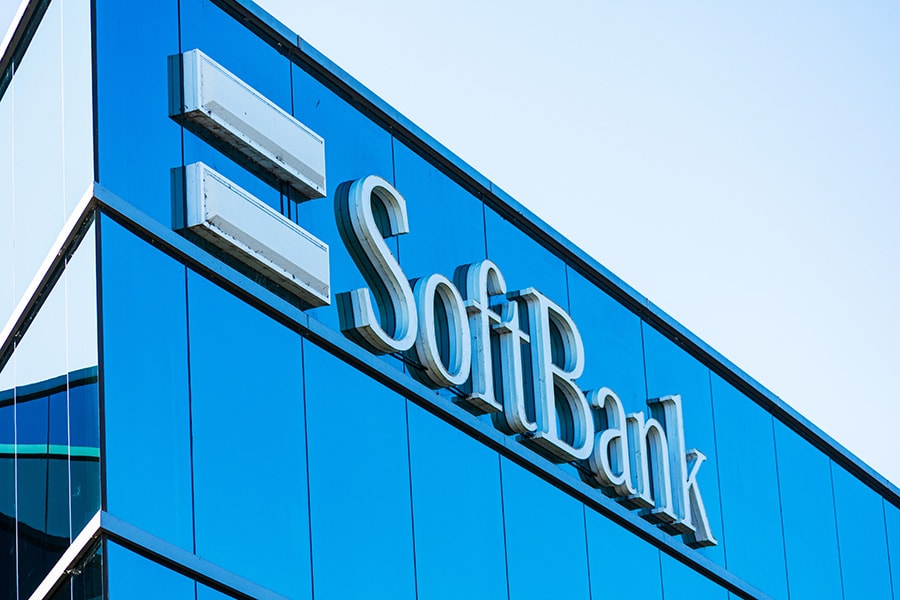SoftBank's troubles deepen with warning of $16.7 bn writedown
The Japanese conglomerate, which bet big on tech start-ups with its $100 billion Vision Fund, also expects its first annual loss in 15 years


 Image: Shutterstock
Image: Shutterstock
TOKYO — SoftBank warned investors on Monday that the value of its technology fund may have dropped by as much as $16.7 billion over the last fiscal year, as its investments have been hit hard by the fallout from the coronavirus and by big bets on unprofitable companies like WeWork.
SoftBank, which had deployed a $100 billion Vision Fund to make huge wagers on young companies like WeWork and Uber over the last few years, said in a statement posted to its website that the fund would record a loss of 1.8 trillion yen for the fiscal year that ended in March “due to the deteriorating market environment.”
While the loss will be partially offset by revenue from SoftBank’s other businesses, the company said it expected to end the year with a 1.35 trillion-yen loss, its first annual loss in 15 years.
The disclosure marked another stumble for SoftBank, which upended the startup investment world when it began the Vision Fund in 2017, but has lately been struggling. The fund was the largest pool of money ever raised for private technology companies, with backing from sovereign wealth funds in Saudi Arabia and Abu Dhabi, as well as Apple and Foxconn.
Through it, SoftBank bet big on startups around the world, including Uber, a ride-hailing giant WeWork, a coworking startup Oyo, a hospitality company in India Coupang, an e-commerce company in South Korea and Rappi, a delivery company in Latin America. Its aggressive deal-making pushed Silicon Valley investment firms to move faster and raise larger funds to keep up.
But cracks began showing last year, when Uber went public at a much lower valuation than expected. In October, WeWork yanked its highly anticipated initial public offering over allegations of mismanagement, and SoftBank pledged almost $10 billion to bail out the company. Both Uber and WeWork grew quickly but are unprofitable.
In November, Masayoshi Son, SoftBank’s founder and chief executive, said the Vision Fund would not offer bailouts to any more of its investments. Soon after, startups around the world shifted their strategies from fast growth to cutting costs and trying to turn a profit.
This year, several of SoftBank’s portfolio companies, including Brandless, an e-commerce business Wag, a dog-walking service Zume, a robot pizza company, and Getaround, a car-sharing company, laid off staff, scaled back or shut down. In March, SoftBank’s bet on the satellite startup OneWeb went sour when the company announced it had filed for bankruptcy and planned to sell itself.
The spread of the coronavirus has compounded the struggles, with startups across the tech industry having been affected. According to Layoffs.fyi, a site tracking startup layoffs, more than 200 startups have cut nearly 20,000 jobs since March 11.
Some of SoftBank’s investments, like food delivery company DoorDash, have found their services in higher demand amid the economic disruptions caused by the pandemic.
But SoftBank’s investments in companies that provide services like ride hailing and hotel booking have made it vulnerable. The small business lender Kabbage and the real estate broker Compass recently laid off and furloughed staff. Widespread shelter-in-place orders have dealt a further blow to WeWork, which has kept many of its co-working locations open amid the outbreak.
Duncan Davidson, a venture capital investor at Bullpen Capital, said that SoftBank had driven a bubble in overvalued startup “unicorns” — the private companies valued at $1 billion or more — that burst last year.
“It was blowing up anyway, before the virus,” he said. “The virus makes the weaker ones more obviously weak.”
Kyle Stanford, a venture capital analyst with PitchBook, a service that tracks startup investments, said many venture capital firms were writing down the values of portfolio companies because of the pandemic, but “no other firm can match the scale of SoftBank” in its writedowns.
The Vision Fund “will have to choose its best investments to support” through the crisis, he said.
In February, Elliott Management, an activist investor, began agitating for change at SoftBank. Public market investors have discounted SoftBank’s stock to a fraction of the value of the firm’s holdings.
SoftBank said last month that it would sell down $41 billion of its assets — including a portion of its shares in the Chinese retail company Alibaba, its most successful investment — to shore up its cash position and finance an $18 billion investment in its own shares.
In a recent interview with Forbes, Son said he expected 15 Vision Fund portfolio companies to fail. But his grand vision for the Vision Fund, he said, was “unchanged.”
First Published: Apr 14, 2020, 12:33
Subscribe Now